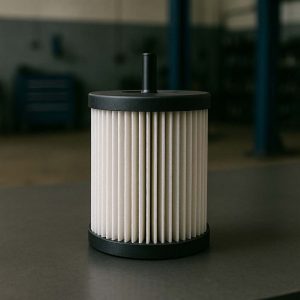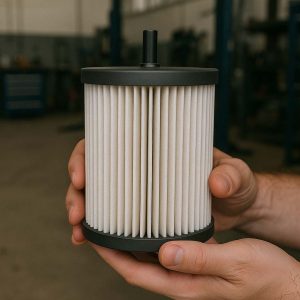In today’s automotive landscape, reducing harmful emissions from diesel engines is more critical than ever. Stricter environmental regulations and increasing public awareness about air pollution have pushed car manufacturers and component suppliers to innovate technologies that minimize pollutants. One of the key components in this effort is the carbamide filter, a specialized filter used in diesel vehicles to help control nitrogen oxide (NOx) emissions. This article explores what a carbamide filter is, how it works, and why it’s essential for maintaining compliance and protecting the environment.
What Is a Carbamide Filter?

A carbamide filter, also known as an AdBlue filter or DEF (Diesel Exhaust Fluid) filter, is an integral part of the Selective Catalytic Reduction (SCR) system installed in many modern diesel vehicles. It filters the AdBlue solution — a mixture primarily made of urea (carbamide) and deionized water — before it is injected into the exhaust stream.
Why filter AdBlue?
AdBlue must be free from impurities and particles that could clog the SCR injector nozzles or damage the catalyst. Contaminants can cause malfunctions, increase emissions, and lead to costly repairs.
How Does the Carbamide Filter Work?
The carbamide filter is positioned in the AdBlue supply line and acts as a protective barrier. It removes dirt, sediments, and crystallized urea particles from the DEF fluid, ensuring that only clean fluid reaches the SCR system.
SCR system overview:
-
Exhaust gases exit the engine.
-
AdBlue is injected into the hot exhaust stream.
-
The urea in AdBlue decomposes into ammonia.
-
Ammonia reacts with NOx gases over the SCR catalyst.
-
NOx is converted into harmless nitrogen (N₂) and water vapor (H₂O).
Without a functioning carbamide filter, the injection process can become inefficient, leading to higher NOx emissions and potential system failures.
Why Is the Carbamide Filter Important?
| Importance Factor | Explanation |
|---|---|
| Emissions Compliance | Ensures the SCR system works efficiently to meet emission standards like Euro 6 and EPA Tier 4. |
| Engine Performance | Helps maintain proper functioning of the exhaust aftertreatment system, preventing power loss. |
| Cost Savings | Prevents costly damage to SCR injectors and catalysts by filtering harmful particles. |
| Environmental Impact | Reduces toxic NOx gases, improving air quality and reducing environmental harm. |
Signs of a Faulty or Clogged Carbamide Filter
Recognizing problems early can save you time and money. Here are some common symptoms:
-
Warning lights related to SCR or emissions system on the dashboard
-
Increased diesel consumption
-
Reduced engine power or performance
-
AdBlue system fault codes during diagnostics
-
Difficulty refilling or leaking AdBlue fluid
Maintenance Tips for Carbamide Filters
Proper care can extend the lifespan of your carbamide filter and ensure your diesel vehicle runs clean and efficient.
Recommended practices:
| Task | Frequency | Why It Matters |
|---|---|---|
| Inspect DEF fluid quality | At every refill or service | Prevents contamination from entering the filter |
| Replace carbamide filter | Every 60,000 to 100,000 km | Avoid clogging and SCR system malfunctions |
| Clean AdBlue tank | Every 2 years | Removes sediments that can clog the filter and injectors |
| Use OEM or certified DEF | Every refill | Ensures fluid purity and system reliability |
The Environmental Benefits of Carbamide Filters
Nitrogen oxides are harmful pollutants contributing to smog, acid rain, and respiratory problems. By enabling effective SCR operation, carbamide filters help diesel vehicles:
-
Drastically reduce NOx emissions (up to 90%)
-
Meet stringent global emission standards
-
Improve air quality in urban areas
-
Support cleaner transportation initiatives worldwide
When to Replace Your Carbamide Filter?

The carbamide filter typically requires replacement based on mileage or performance. Signs it’s time to replace include:
-
Persistent warning messages related to SCR or AdBlue system
-
Noticeable drop in vehicle performance or fuel efficiency
-
Difficulty in refilling or leakage around the AdBlue system
-
Results from diagnostic tests indicating filter clogging
Ignoring these signs can result in costly repairs and potential fines for emission non-compliance.
Where to Buy Quality Carbamide Filters?
Selecting the right carbamide filter is crucial for optimal vehicle performance and emissions compliance. Choose high-quality, OEM or OEM-equivalent parts designed specifically for your vehicle model.
Buy carbamide filter online — reliable, high-quality carbamide filters and components are available with fast delivery, ensuring your diesel vehicle runs efficiently and cleanly.
Conclusion
The carbamide filter, though a small and often overlooked component, plays a big role in controlling emissions from modern diesel engines. It protects the SCR system by filtering the AdBlue solution, ensuring efficient NOx reduction and compliance with environmental regulations. Regular inspection, proper maintenance, and timely replacement of your carbamide filter are vital to keeping your vehicle running smoothly and reducing its environmental footprint.
Investing in quality carbamide filters not only protects your engine and exhaust system but also contributes to a cleaner, healthier environment.
For trusted parts and professional-grade carbamide filters, visit and Buy carbamide filter online today.